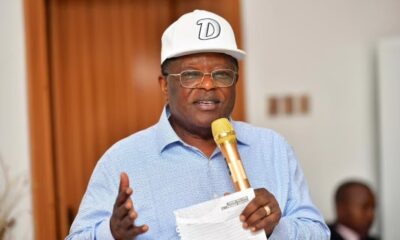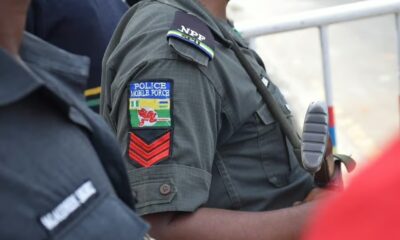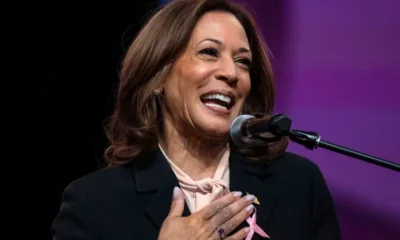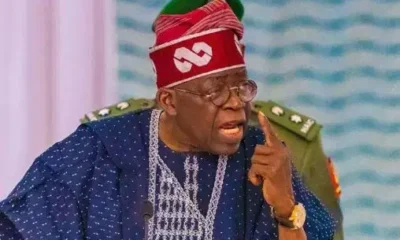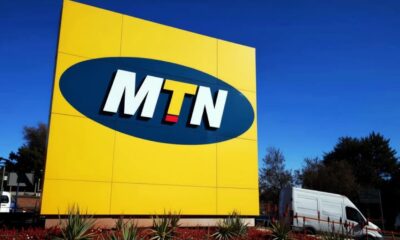News
Boat passengers query Lagos’ €410m Omi Eko project
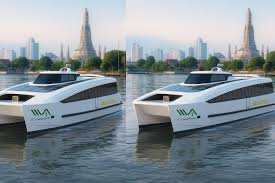
Boat passengers under the auspices of the United Waterways Passengers Association have queried the €410m Omi Eko Project, saying that the passenger capacity of the boats could pose operational challenges.
The stakeholders, who spoke with Saturday PUNCH on Friday, explained that with a passenger capacity exceeding 30 passengers, the boats might experience delays as operators would have to wait for full capacity before departure.
This development comes weeks after the Lagos State Government, in collaboration with its foreign partners, unveiled the €410m Omi Eko Project.
In October, The PUNCH reported that Lagos State Governor, Babajide Sanwo-Olu, while speaking at the groundbreaking of the project in Lagos, said that the Omi Eko Project would transform the state’s waterways from barriers of separation into corridors of opportunity.
Sanwo-Olu emphasised that the initiative was part of broader efforts to improve the transport system in Lagos.
The €410m Omi Eko Project—meaning “Water of Lagos”—marks a new phase in the city’s transportation history, aiming to build a sustainable, smart, and efficient water mobility ecosystem. The project is designed to ease pressure on Lagos’s congested roads by harnessing its vast waterways to connect communities more efficiently while promoting clean energy and innovation.
The governor described the initiative as a “comprehensive, future-oriented blueprint for sustainable mobility,” noting that it merges technology, promotes environmental stewardship, and creates a smart, optimized design for water transport.
“Our goal is clear: a Lagos where movement is seamless, where the air is cleaner, and where the waterways become corridors of opportunity rather than barriers of separation,” Sanwo-Olu said.
On his part, the European Union Ambassador to Nigeria and ECOWAS, Mr. Gautier Mignot, noted that the project enjoyed EU sponsorship because it aligns with the Abidjan-Lagos Transport Corridor, a key part of the Global Gateways Strategy.
The Special Adviser to the Governor on Blue Economy, Mr Damilola Emmanuel, highlighted that the €410m Omi Eko Project represents the largest inland waterways investment in Africa.
Emmanuel explained that the project would deploy over 70 hybrid-electric ferries to reduce emissions and promote cleaner mobility.
“We are going to be upgrading 20 jetties and terminals. We are going to be dredging and channelising 15 routes for safer and faster transport, and we will also focus on capacity development for all stakeholders. Crucially, we are funding the informal sector under the vessel industry transition programme,” Emmanuel said.
Providing updates, Emmanuel told Saturday PUNCH in a telephone conversation on Friday that the boats would begin arriving in batches by 2027.
“You know it’s a six-year project, and the boats will start coming by 2027. On the passenger capacity, there is a 50-passenger capacity, a 120-passenger capacity, and we also have boats above 200,” he stated.
However, reacting to the development, the Chairman of the UWPA, Mr Gbenga Oluwadiya, said any boat carrying more than 30 passengers at once on Lagos waterways would likely fail.
Oluwadiya, while commending the Lagos State Government for the initiative, lamented that passengers were not consulted during the design phase of the project.
“I think it’s a good initiative, which we applauded, but we were not given a say in the design of these boats. Because they are bringing high-capacity boats. And our requirement is not high-capacity at this time. Any boat that can carry more than 30 passengers at a time will be a failure on Lagos waters because it will take time to load and transport,” Oluwadiya said.
He added that boat passengers in Lagos were used to smaller boats carrying a maximum of 30 passengers.
“For example, if I want to go to work in the morning, how long will it take to load 60 or 80 passengers? What they are planning to do, I think, is 70-passenger boats. I would rather take the road instead of wasting time at the jetty waiting for the boat to load,” he said.
He stressed that passengers needed faster and more compact options, describing that as “the failure of the Omi Eko Project.”
Oluwadiya argued that Nigerians are used to road transport. “That is why it is easier for BRT buses with more than 30-seater capacity to load faster than a boat,” he stated. “When you are building something for the people, you need to take care of the passengers.”
Also speaking, the President of the Barge Operators Association of Nigeria, Mr Olubunmi Olumekan, called for proper scheduling of boat departures to address potential delays, noting that larger-capacity boats might not be fully loaded before takeoff.
“I think what the government can do is to fix a departure time. Whether the passengers are complete or not, the boat should have a set time to depart instead of waiting until it is full,” he said.
Olumekan further called for increased public awareness and sensitization to attract more patronage.
“We need more adverts and awareness for people to know that the waterways are even safer than the roads. The government should also ensure that water transport is cheaper,” he said.(Punch)
-

 News14 hours ago
News14 hours agoFG announces six-week partial closure of Lagos-Ibadan Expressway for repairs
-

 Metro14 hours ago
Metro14 hours agoSix suspected kidnappers arrested as security agencies storm Edo forest
-

 World News20 hours ago
World News20 hours agoKamala Harris reactivates campaign social media account
-

 News14 hours ago
News14 hours agoFlorida Assets: U.S. Authorities Silent as Sowore’s Petition Against Wike Gains International Attention
-

 World News20 hours ago
World News20 hours agoSaudi Arabia ‘allowing’ wealthy foreigners to buy alcohol
-

 News20 hours ago
News20 hours agoKwara attack: Ensure peace is restored – Tinubu tells military
-

 Metro15 hours ago
Metro15 hours agoNigerian jailed for life after stabbing UK student to death
-

 Business14 hours ago
Business14 hours agoMTN eyes remaining 75% stake in IHS Holdings



